- Home
- Seanan McGuire
All Hail Our Robot Conquerors! Page 8
All Hail Our Robot Conquerors! Read online
Page 8
“I don’t even know if there’s…” The board lit up. “Okay, there’s power.” He squared his shoulders and plugged in a headset. “If nothing else, I should be able to eavesdrop on the chatter…” His voice trailed off as he slid the keyboard out onto the edge of the desk and began to type.
Bonk.
Bonk.
Bonk.
Alice rolled to the door. The bot skittered sideways out of her way. When she opened it, it rolled over the threshold and raced across the parking lot toward The City.
The sergeant was frowning when she turned. That wasn’t good. “United Industries is in lockdown,” he said, the headset’s microphone flipped up out of the way. “The City’s bots have been returning to the labs for the last four hours. They’re calling in emergency personnel…”
“Hundreds of bots linked together. They don’t think. They just obey. What happens when one stops obeying?” Alice glanced at Peter’s picture of the giant, shiny robot rising above the roof tops. “We were sent here to serve and protect under military supervision. The military wouldn’t waste personnel on transport or repairs or…” She waved an extender between her and Adam. “…or human machine interaction.”
Sergeant Prawak laughed although there was little humor in the sound. “Actually, they were very interested in that last bit.”
“But that wasn’t why they, you, were here. We were here to serve…”
“And protect!” Adam declared.
She could feel the buzz over the net. Knew he’d connected the variables. “The military deals in weapons. That’s the difference between the military and everyone else.”
“No.” The sergeant shook his head. “There’s the discipline, the teamwork, the uniforms…”
Alison spun her wheels. “The Girl Guides.”
“The weapons are the only thing that applies uniquely to the military,” Alice continued, ignoring them both. “We weren’t being studied. The military was here in case we needed to be used.”
“For what? How were we to…”
Sergeant Prawak held up a hand and took off his headset. “I’ve got local news live on the scene.” He turned up the volume.
“…haven’t been able to reach CEO Hunt since the lockdown began. What? What? I’ve just been told the subdivision bots have begun to arrive. Some of the drones are carrying the smaller surface…Wait! Something’s rising up out of the ruins of the lab. Something big. It’s a …a…it’s a robot! A robot made up of smaller bots joined together. The arriving bots are attaching themselves to the robot! And more bots are arriving! It can only get bigger! It’s just thrown a bus into…”
Alice reached past him and turned the sound off. The background signal, the signal that carried their network, had switched to 10 GHz. “How were we to protect?” she asked softly.
The sergeant sighed. Alice took a nanosecond to envy him. “You weren’t intended for something like this.” He waved at the silent speaker. “United Industries thought the attack would come from the outside. Corporate sabotage. The subdivisions were a buffer around The City. It’s why none of UI’s upper echelon lived out here.”
“That doesn’t matter now.” Adam’s scanner rings spun. “How do we fulfill our purpose!”
“Please, don’t get him started,” Arthur muttered. “I swear I’ll roll into a pool of acid if I have to listen to one more lecture on how we were meant for more than this.”
“We were,” Alice told him. “Now be quiet.”
“You can’t fulfil your purpose.” The sergeant’s shoulders slumped. Slightly. Two point seventeen millimeters. “It takes two keys.” He spun his chair and pointed at the programmers’ panel.
“What does?”
“I don’t know. I didn’t have the clearance.”
“That’s why they let you stay.”
He nodded.
Alice upped the magnification on her visual sensors and leaned in. Leaned back. “Tell Alfred and Abigail to turn the locks.”
They’d been ordered not to interfere with the military’s abandoned equipment. The order had to be rescinded.
“I suppose this was inevitable,” he said after Alfred and Abigail had worked the thinnest of their end effectors deep into the panel. “When I first came here, I assumed you’d be all about absolutes.”
Alice remembered Vasyl bleeding, Peter using the touch up paint, arms on a vacuum, explosions. “We learned not to be.”
“The bots…”
“Don’t learn.”
Arms folded, feet shoulder width apart, the sergeant smiled. “That seems to have been a mistake.”
Alfred’s chassis vibrated. “Got it. It’s like a mock cable stitch. Purl four, knit one, purl one, knit four.”
“You’re delusional,” Abigail told him.
“Really? Extend the B5 prob and turn it left…now.”
Alice could tell by the way they stilled they’d all felt the click. New files in core programming opened and…
“Outside!” Adam bellowed. “Into the parking lot!”
“Who died and put you in charge,” Alison grumbled, but for the first time in a long time, everyone obeyed and no one got jammed up in the door.
As she rolled off the concrete pad, Alice heard Sergeant Prawak demand to know what was happening. She couldn’t answer.
Her legs compacted into heavy…
…sockets settling over Arthur and Alison. Their sensor arrays absorbed and…
…arms inside Alfred and Abigail, locking…
…their legs extended across her chassis, securing…
…Adam’s body expanding, sliding over hers, putting her at the heart of things…
…the network holding them, together, still separate…
…joined like the bots, but not…
…seeing through Adam’s eyes only a lot further from the ground.
“Well.” Sergeant Prawak looked up at them. “That’s…unexpected. Problem is, I don’t know who has your command codes.”
“We’re not a weapon.” Alice paraphrased what Peter had told her. “We’re almost a person.”
The new tree in the middle of the community center lawn exploded.
“Oops,” said Alison.
“Who said you could control the energy beam? Huh? Who?”
“Adam.”
“I did not!”
“Enough!” Alice felt her new body settle back to stillness. They rolled west, then north, then pivoted in place. Everything seemed to be working.
“You can’t do this alone,” the sergeant said.
Arthur and Alison attempted to roll in opposite directions.
“Not exactly alone,” Alice pointed out.
“There’s six other identical subdivisions,” he reminded her.
“Arthur! Alison!” Adam snapped. “You’ve worked in tandem before and we’re all going to the same place! Get a grip!”
Alice took back control of the speaker grid. “You can contact the other subdivisions?”
“Not exactly. I can contact the other non-coms. We…” He looked as though he were trying to decide how much to say. “We stay in touch.”
“Don’t use your phone. It’s a bot.”
He nodded. “I’ll use the board. Old tech. If nothing else, I’ll set off the alarms and wake them up. Go on…” He waved them toward the station. “…I’ve got this. Save the day.”
The stars twinkled overhead. It was two oh seven in the morning. Legs locked, they rolled along the road toward the station. When they reached the tracks, they’d ride the rails. When they reached The City…
“Do you think we stand a chance?” Alfred asked. “The others might not come in time, if they come at all.”
“They’ll come,” Adam told him. “And they’ll do as they’re told. We were the first of the seven. We’ll be in command.”
“We were intended to command,” Alice amended. “But we’re not who we were when our code was written. They won’t be either.”
“Maybe we’ll h
ave to learn to cooperate,” Arthur offered, not slowing as they rolled past the station and up onto the tracks.
“Maybe,” Alice allowed, thinking of the damage the door to the charging room had taken. She centered herself as they turned toward The City and wondered if the glow of light looked dimmer. Or brighter. Which would be worse?
Alison adjusted their wheel width and they picked up speed. “All I know is that if anyone lays so much as an end effector on my kids, I’ll cooperate a strut right up in their grill.”
“There’s so many things wrong with that comment, I don’t know where to begin.”
“Red letter date! Adam admits there’s something he doesn’t know.”
“Shut-up!”
“You shut-up!”
“You know, there’d be plenty of room in this interface for everyone if you’d stop shoving!”
“Hey, anyone want to bet on what color the robot’s eyes will be…”
DIRECTOR X AND THE THRILLING WONDERS OF
OUTER SPACE
Brian Trent
The hovercar zipped along Los Angeles’ abandoned streets like a glassy bullet, the reflected starlight melting along its sleek, tear-drop flanks. Its electric engine purred. The driver banked left through what remained of Laurel Canyon, rocketing over bomb craters and weaving in and out of palm trees that had sprouted from shattered asphalt.
At Hollywood Hills, the hovercar’s headlights illuminated a cave. The vehicle roared inside, tail-lights filling the narrow tunnel with ruby light as the driver applied reverse-thrust. The headlights painted a matte-black door ahead, hung with a signpost:
WHITLEY HEIGHTS BOMB SHELTER
LOS ANGELES DISTRICT 5
AUTHORIZED PERSONNEL ONLY
NO TRESPASSING
The hovercar door clicked open. The driver unfolded itself from the seat and stepped out like an oversized praying mantis in the reddish gloom.
Director X (as was his designation from the Global Security Protectorate) was a tall, silver robot who roughly approximated the human form. That is to say, Director X was bipedal, with two accordion arms and long, multijointed legs. It even had two eyes, like little flashlights protruding from the glass dome atop its neck.
The eyes swiveled around, casting twin beams in the blackness. They halted at the door’s intercom.
The robot stabbed one of its blocky fingers into the button and said cheerfully, “Hello! I am Director X. By authority of the Global Security Protectorate, I humbly thank you for opening your doors immediately and inviting me inside!”
The black door lifted so quickly it seemed to have disappeared. Behind it, another door vanished, and then another, revealing a lengthy corridor opening into a gray rotunda.
Director X plodded forward towards the lobby. The doors behind it snapped shut with a successive thump! thump! thump!
The robot stood motionless in the soapy decontamination spray that followed. The spray, it knew, was unnecessary; radiation had long ago declined to perfectly safe levels. Nonetheless, Director X waited patiently as the liquid ran over his glass head and silver torso, black accordion arms, and the actuators in his legs. Blowers roared to life, drying him.
One final door snapped open. Director X trundled through…
…and into the quaint town Retro Los Angeles.
The Stygian metropolis was a weak echo of its namesake. Brick buildings and plastic green parks, churches and schools, brass corporate doorways and outdoor cafes. Artificial palm trees lined the sidewalk like cheerful soldiers.
Director X gazed up at the “sky.” It was the rocky ceiling of a cave, painted azure and with billowy clouds. The sun—a blazing globe like a massive heat-lamp—crawled east to west along a thinly concealed metal track in the granite.
As the robot was descending white-lacquered steps into the town proper, someone cried, “You there!”
Director X’s flashlight eyes snapped towards an approaching group of men and one little boy. “Hello,” it said.
The men halted. Their presumed leader stepped forward, gray moustache bent in a mighty frown.
“I’m Jonathan Croker, Mayor of District 5.”
“And I am Director X, filmmaker of the Protectorate. Thank you for receiving me.” The robot hesitated, and then chose a complimentary line of small talk to put these obviously nervous people at ease; the only one who looked happy was the little boy. “I like your shelter’s doors. Very Forbidden Planet.”
Croker’s expression didn’t soften. “Director X? You make those crappy…um…late-night movies, right? Why are you here? Robots never visit us.”
“I was hoping to enlist the services of my human peers.”
“What services?”
“Well you see, there is a problem topside. This problem is—”
“Giant ants!” the little boy shouted. “The topside world is filled with giant ants, right? You need people to help fight them, and locate their queen!”
The mayor grinned bleakly. “This is my boy, Bobby. Sorry, he has an overactive imagination.”
Director X stooped and patted the little human on his head. “Hello, Bobby! There are no giant ants in the world. But I see you are a fan of the Them! series. That makes me glad. I also like the Them! series.”
The kid looked crestfallen. “No giant ants?”
“Bobby!” Mayor Croker snapped. “Enough!”
Director X straightened. “You are familiar with my movies, yes?”
“Sure, when I can’t sleep. I’ve caught a few of your pictures.”
“I am looking to make a new series of films and I have chosen District 5 to be my partner in this endeavor.”
Jonathan Croker frowned until his moustache bent. “Your partner for what?”
“I wish to enlist your townspeople as actors and writers and to utilize your town as a location. Ah! I can see several choice locales, including that beautiful church and lovely library. What a charming park! Why, even that bank could be used for an exciting robbery sequence!”
The mayor regarded his associates. “I’m afraid we don’t understand. Robots make all the movies.”
Director X gave an exaggerated nod. “That is correct. But as you surely know, before the War of 62, human beings made movies. I wish to involve human beings in the moviemaking process once again.”
Suspicion creased Croker’s forehead. “Why? Is there a problem?”
“Well yes. The problem is—”
“Giant locusts!” the little boy cried.
“Bobby!”
Director X hesitated. Several lines of response suggested themselves, and the robot’s processors clicked and whirred as they weighed an appropriate response. Its flashlight eyes swiveled in their sockets.
The problem was that the silicon studios were running out of ideas.
With copyright law as extinct as the old world, the Protectorate’s twenty-six filmmakers had gone on to mine literature until they were scraping bottom: Director L had recently been reduced to producing cinematic treatments of ancient Babylonian literary fragments, including The Epic of Lugalbanda, Marriage Contract of My Sixth Daughter for Three Oxen, and Prayer to Protect the Soul Against Crocodile Spirits. These had not been well-received—achieving truly abysmal viewer ratings—and the wretched feedback had precipitated the Great Studio Conference of last summer.
Protectorate filmmakers met to debate the problem. After six hours of discussion, they reached a near-unanimous decision: start making crossovers. Production slates rapidly filled with everything from Sir Gawain Versus the Great God Pan to Dorothy Meets the Hounds of Tindalos.
Director X had been the lone dissenting vote.
“I’m seeking something new to make,” Director X explained to Mayor Croker. “Something in the vein of The Day the Earth Stood Still, or Earth Versus the Flying Saucers, or…”
The robot trailed off.
The men were staring without comprehension. Little Bobby frowned.
“Or,” Director X continued, “an outer sp
ace adventure series similar to Flash Gordon.”
“Flash who?”
“Buck Rogers?”
No reaction.
Now it was Director X who stared dumbfounded. It recalled how they hadn’t responded to its Forbidden Planet quip earlier.
“Science-fiction films,” the robot said at last.
Mayor Croker rolled his eyes. “Sure, we’ve seen science-fiction films. Kind of silly stuff, if you ask me. Mutants, monsters from under the sea…”
“Giant bugs,” Bobby muttered.
“I’m referring to films about outer space. Travelling in rocket ships to other stars and planets.”
Croker seemed to go blank. His associates blinked stupidly.
“What’s ‘outer space?’” Bobby asked. “What’s a ‘rocket ship?’”
“Surely you must have old books,” Director X prompted. “Asimov, Bradbury, Clarke? Moore, Nowlan, Oliver?”
“Moore? Didn’t she write that sea monster story?”
“Yes,” Director X said, “but she also penned a series of outer space adventures.”
Mayor Croker reddened. “And what the hell is an outer space adventure? What’s this ‘outer space’ you’re talking about?”
Director X froze in place.
This was not possible.
Its self-preservation protocols immediately kicked in, having identified an anomaly so profound that it warranted immediate and discreet analysis.
“So anyway,” the robot muttered, “I should like to create a temporary studio in District 5 to create new kinds of movies. Would that be okay?”
Mayor Croker stroked his moustache. “Do we have a choice?”
“Of course not. Would you kindly take me on a tour of your pleasant little town?”
* * *
District 5 was in some ways precisely what Director X expected to find.
Since the War of 62, humanity had retreated into insular, subterranean communities. Retro Los Angeles had been constructed to approximate its sunnier progenitor as seen in films and old photos, with its streets and banks and electric streetcars. The pedestrians Director X observed were also imitative of older days: recreations of Astor and Bogart in The Maltese Falcon franchise; Holden and Hepburn in the Sabrina saga; and Wyatt and Young from the Father Knows Best epic. A century had passed since the War of 62, and yet if Retro Los Angeles was any indication, styles and ideas and innovations had ground to a halt as surely as topside vehicles lay rotting in their own pools of rust.

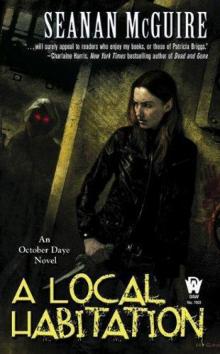 A Local Habitation
A Local Habitation One Salt Sea
One Salt Sea Beneath the Sugar Sky
Beneath the Sugar Sky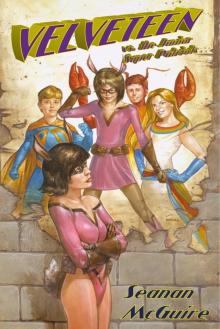 Velveteen vs. The Junior Super Patriots
Velveteen vs. The Junior Super Patriots The Girl in the Green Silk Gown
The Girl in the Green Silk Gown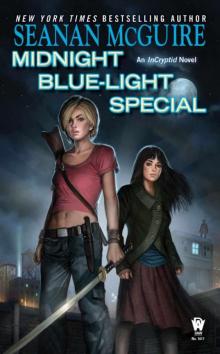 Midnight Blue-Light Special
Midnight Blue-Light Special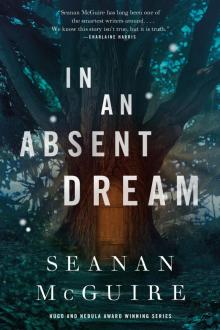 In an Absent Dream
In an Absent Dream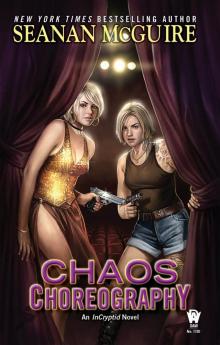 Chaos Choreography
Chaos Choreography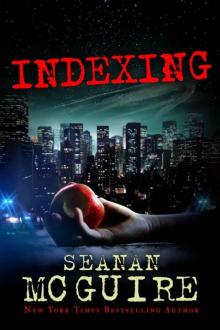 Indexing
Indexing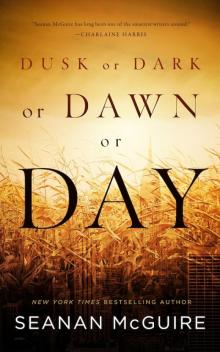 Dusk or Dark or Dawn or Day
Dusk or Dark or Dawn or Day Down Among the Sticks and Bones
Down Among the Sticks and Bones The Razor's Edge
The Razor's Edge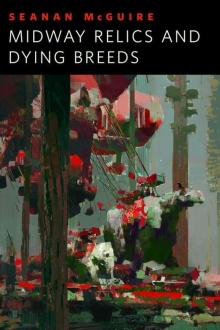 Midway Relics and Dying Breeds
Midway Relics and Dying Breeds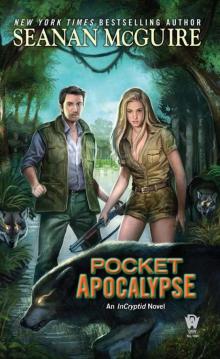 Pocket Apocalypse
Pocket Apocalypse The Brightest Fell
The Brightest Fell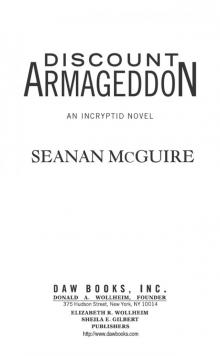 Discount Armageddon
Discount Armageddon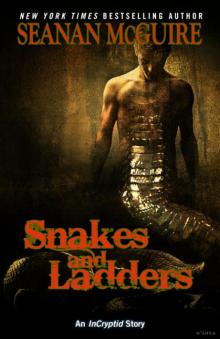 Snakes and Ladders
Snakes and Ladders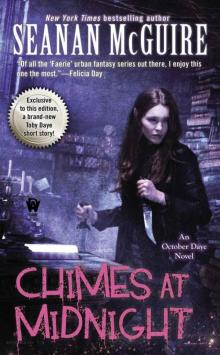 Chimes at Midnight
Chimes at Midnight Broken Paper Hearts
Broken Paper Hearts A Red-Rose Chain
A Red-Rose Chain Married in Green
Married in Green Sparrow Hill Road 2010 By Seanan
Sparrow Hill Road 2010 By Seanan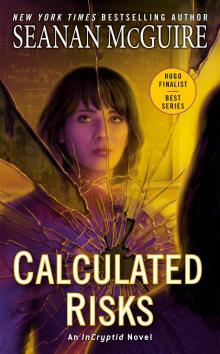 Calculated Risks
Calculated Risks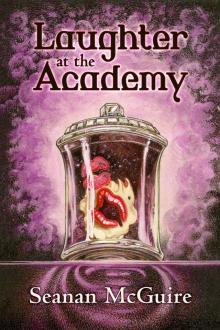 Laughter at the Academy
Laughter at the Academy The Winter Long
The Winter Long We Both Go Down Together
We Both Go Down Together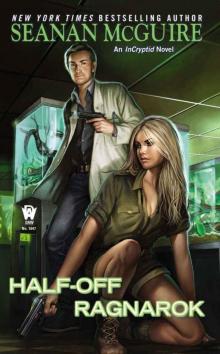 Half-Off Ragnarok
Half-Off Ragnarok Velveteen vs. The Seasons
Velveteen vs. The Seasons Boneyard
Boneyard A Killing Frost
A Killing Frost Late Eclipses
Late Eclipses Submerged
Submerged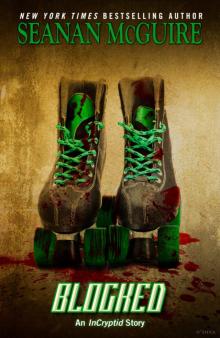 Blocked
Blocked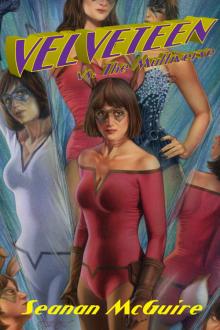 Velveteen vs. The Multiverse
Velveteen vs. The Multiverse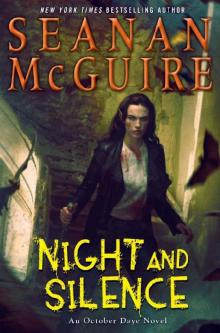 Night and Silence
Night and Silence The Unkindest Tide (October Daye)
The Unkindest Tide (October Daye)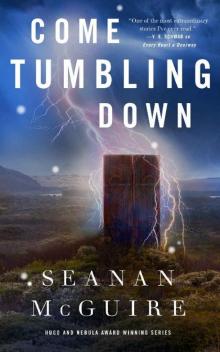 Come Tumbling Down (Wayward Children)
Come Tumbling Down (Wayward Children)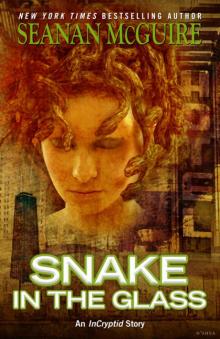 Snake in the Glass
Snake in the Glass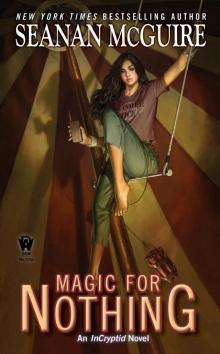 Magic for Nothing
Magic for Nothing Full of Briars
Full of Briars Oh Pretty Bird
Oh Pretty Bird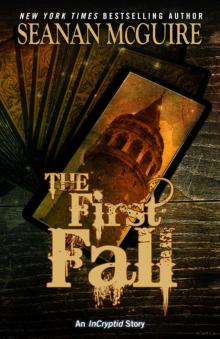 The First Fall
The First Fall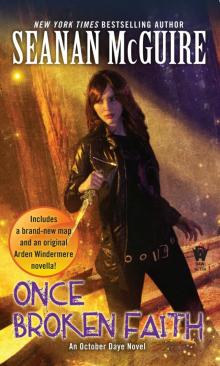 Once Broken Faith
Once Broken Faith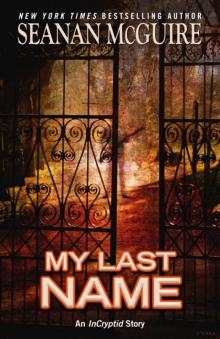 My Last Name
My Last Name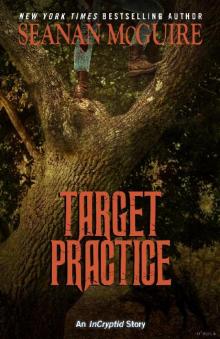 Target Practice
Target Practice Wayward Children 01 - Every Heart a Doorway
Wayward Children 01 - Every Heart a Doorway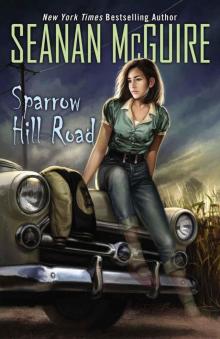 Sparrow Hill Road
Sparrow Hill Road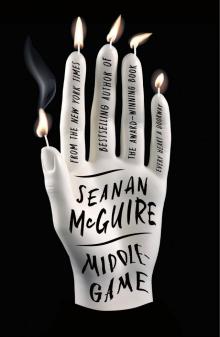 Middlegame
Middlegame Juice Like Wounds
Juice Like Wounds That Ain't Witchcraft
That Ain't Witchcraft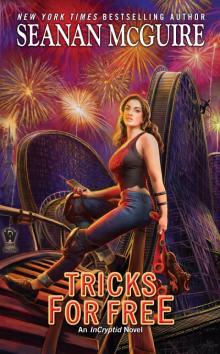 Tricks for Free
Tricks for Free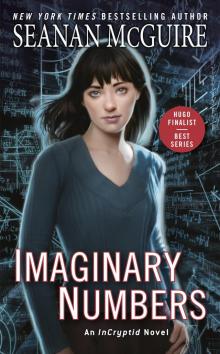 Imaginary Numbers
Imaginary Numbers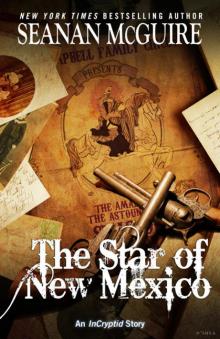 The Star of New Mexico
The Star of New Mexico Lay of the Land
Lay of the Land One Hell of a Ride
One Hell of a Ride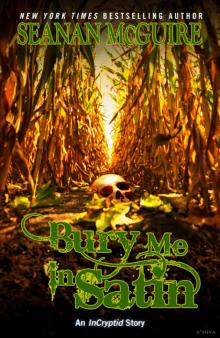 Bury Me in Satin
Bury Me in Satin Heaps of Pearl
Heaps of Pearl Sweet Poison Wine
Sweet Poison Wine When Sorrows Come
When Sorrows Come Every Heart a Doorway
Every Heart a Doorway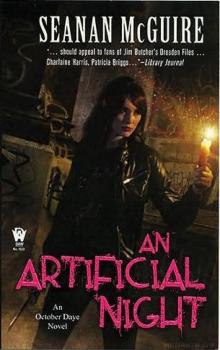 An Artificial Night - BK 3
An Artificial Night - BK 3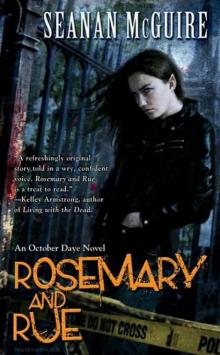 Rosemary and Rue
Rosemary and Rue Black as Blood
Black as Blood Loch and Key
Loch and Key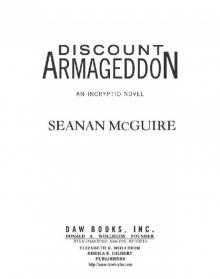 Discount Armageddon: An Incryptid Novel
Discount Armageddon: An Incryptid Novel The Unkindest Tide
The Unkindest Tide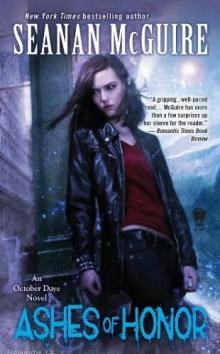 Ashes of Honor od-6
Ashes of Honor od-6 A Local Habitation od-2
A Local Habitation od-2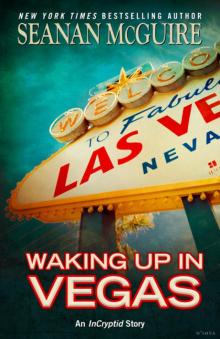 Waking Up in Vegas
Waking Up in Vegas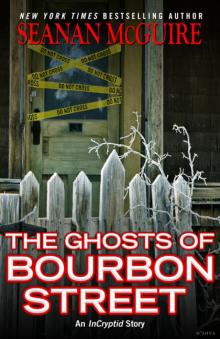 The Ghosts of Bourbon Street
The Ghosts of Bourbon Street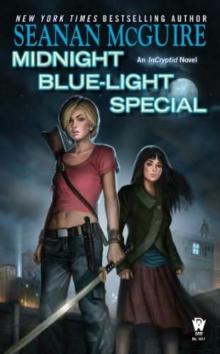 Midnight Blue-Light Special i-2
Midnight Blue-Light Special i-2 Bless Your Mechanical Heart
Bless Your Mechanical Heart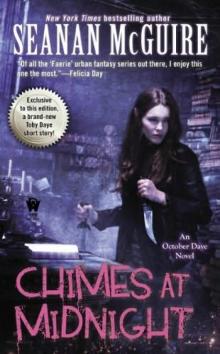 Chimes at Midnight od-7
Chimes at Midnight od-7 The Way Home
The Way Home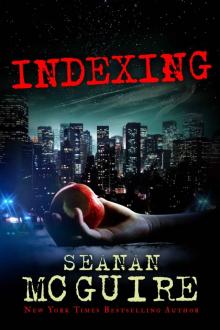 Indexing (Kindle Serial)
Indexing (Kindle Serial)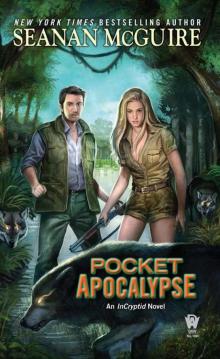 Pocket Apocalypse: InCryptid, Book Four
Pocket Apocalypse: InCryptid, Book Four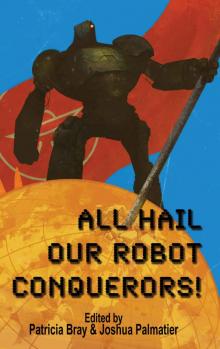 All Hail Our Robot Conquerors!
All Hail Our Robot Conquerors!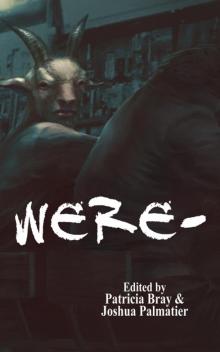 Were-
Were- That Ain't Witchcraft (InCryptid #8)
That Ain't Witchcraft (InCryptid #8)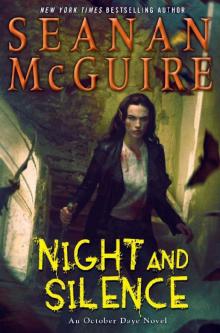 Night and Silence (October Daye)
Night and Silence (October Daye)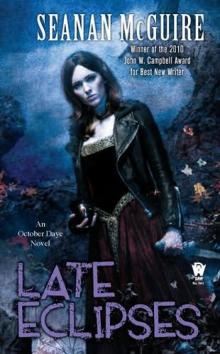 Late Eclipses od-4
Late Eclipses od-4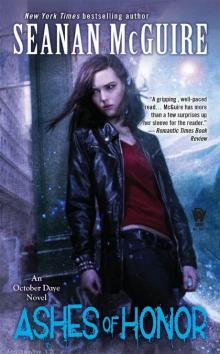 Ashes of Honor: An October Daye Novel
Ashes of Honor: An October Daye Novel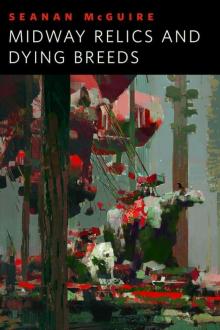 Midway Relics and Dying Breeds: A Tor.Com Original
Midway Relics and Dying Breeds: A Tor.Com Original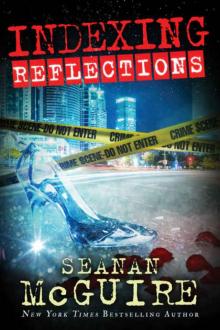 Indexing: Reflections (Kindle Serials) (Indexing Series Book 2)
Indexing: Reflections (Kindle Serials) (Indexing Series Book 2)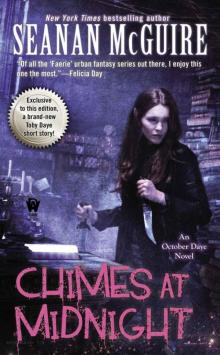 Chimes at Midnight: An October Daye Novel
Chimes at Midnight: An October Daye Novel One Salt Sea: An October Daye Novel
One Salt Sea: An October Daye Novel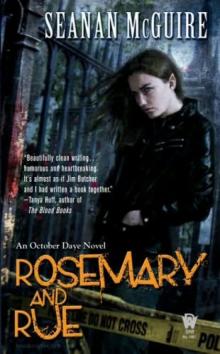 Rosemary and Rue od-1
Rosemary and Rue od-1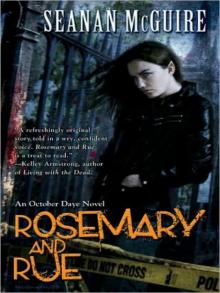 Rosemary and Rue: An October Daye Novel
Rosemary and Rue: An October Daye Novel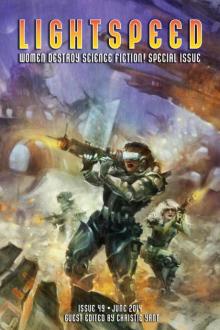 Lightspeed Magazine Issue 49
Lightspeed Magazine Issue 49 Alien Artifacts
Alien Artifacts One Salt Sea od-5
One Salt Sea od-5 An Artificial Night od-3
An Artificial Night od-3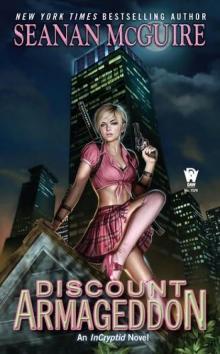 Discount Armageddon i-1
Discount Armageddon i-1